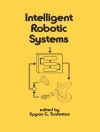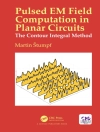This book gathers the proceedings of the 11th International Conference on Frontier Computing, held in Seoul, on July 13–17, 2021, and provides comprehensive coverage of the latest advances and trends in information technology, science, and engineering. It addresses a number of broad themes, including communication networks, business intelligence and knowledge management, Web intelligence, and related fields that inspire the development of information technology. The respective contributions cover a wide range of topics: database and data mining, networking and communications, Web and Internet of things, embedded systems, soft computing, social network analysis, security and privacy, optical communication, and ubiquitous/pervasive computing. Many of the papers outline promising future research directions, and the book benefits students, researchers, and professionals alike. Further, it offers a useful reference guide for newcomers to the field.
表中的内容
Chapter 1 – An Analysis of the Research Situation of China’s National Security—Based on the Perspective of Social Network Analysis.- Chapter 2 – A Study of online electronic voting system based Blockchain.- Chapter 3 – Study of Effective Intelligent Campus using Zigbee based on Sensor Network.- Chapter 4 – Implementation of Smart English Education using Io T based on Blockchain.-Chapter 5 – Implementation for Smart Contract Visualization based on Block Chain.- Chapter 6 – The Effect of Korean Companies Business Environment and Halal Certification on Export Performance.-Chapter 7 – A Study on the Utilization Factors and Satisfaction of Cross-Border E-Commerce in Korea.- Chapter 8 – Study of Effective Storage System for MPEG-7 Document Clustering.- Chapter 9 – An Automatic Pollen Grain Detector Using Deep Learning.- Chapter 10 – Hiding of Personal Information Areas through a Dynamic Selection Strategy.- Chapter 11 – An enhanced adaptive neighbourhood adjustment strategy on MOEA/D for EEG signal decomposition-based big data optimization.- Chapter 12 – Detection of HVDC Interference on Pipeline Based on Convolution Neural Network.- Chapter 13 – Detection of Human Relaxation Level Based on Deep Learning.- Chapter 14 – Human physiological signal detection based on LSTM.- Chapter 15 – A Novel Diagnosis Method of Depression Based on EEG and Convolutional Neural Network.- Chapter 16 – Applying Decision Tree to Detect Credit Card Fraud.- Chapter 17 – Implementation of Traffic Sign Recognition System on Raspberry Pi.- Chapter 18 – The Development of Medical and Nursing VR Lesson Plan with Data Visualization and Evaluation Feedback.- Chapter 19 – Integrating object detection and semantic segmentation into automated pallet forking and picking system in AGV.- Chapter 20 – Multichannel convolutional neural network based soft sensing approach for measuring moisture content in tobacco drying process.
关于作者
Dr. Jason C. Hung is Associate Professor in the Department of Computer Science and Information Engineering at National Taichung University of Science and Technology, Taiwan, ROC. His research interests include multimedia computing and networking, e-learning, Web service, and anticipatory computing. He received his B.S. and M.S. degrees in computer science and information engineering from Tamkang University, in 1996 and 1998, respectively. He also received his Ph.D. in computer science and information engineering from Tamkang University in 2001. He has published over 140 papers and chapters, as well as participated in many international academic activities, including the organization of many international conferences. He is Founder of International Conference on Frontier Computing. In 2013, he served as Hon Treasurer of IET Taipei LN. In April 2014, he was elected as Fellow of the Institution of Engineering and Technology (FIET). He was elected as Vice Chair of IET Taipei LN in November 2014. From June 2015, he is Editor-in-Chief of International Journal of Cognitive Performance Support.
Dr. Neil Y. Yen is Associate Professor at the University of Aizu, Japan. He received doctorates in human sciences (major in human informatics) at Waseda University, Japan, and in engineering (major in computer science) at Tamkang University, Taiwan, in March and June 2012, respectively. His doctor degree at Waseda University was funded by the Japan Society for the Promotion of Science (JSPS) under RONPAKU program. He has actively involved himself in the international activities, including editorial works in journals and books, society services in academic conferences sponsored by IEEE/ACM, etc., and devoted himself to discover advanced and interesting research directions. He has been engaged in the interdisciplinary realms of research, and his research interests are now primarily in the scope of human-centered computing and big data.
Dr. Jia-Wei Chang is Assistant Professor in the Department of Computer Science and Information Engineering at National Taichung University of Science and Technology. Since January 2019, he is Young Professionals Chair of the Institution of Engineering and Technology (IET), Taipei Network. Since 2017, he is a consultant of NEXCOM Industry 4.0 Innovation Center. During February to July 2018, he was Adjunct Assistant Professor in the Department of Engineering Science at National Cheng Kung University. He was Data Scientist and Project Manager at Io T BU, NEXCOM, during 2016–2017. He received the Ph.D. degree from the Department of Engineering Science, National Cheng Kung University, in 2017. His research interests include natural language processing, Internet of things, artificial intelligence, data mining, and e-learning technologies.












